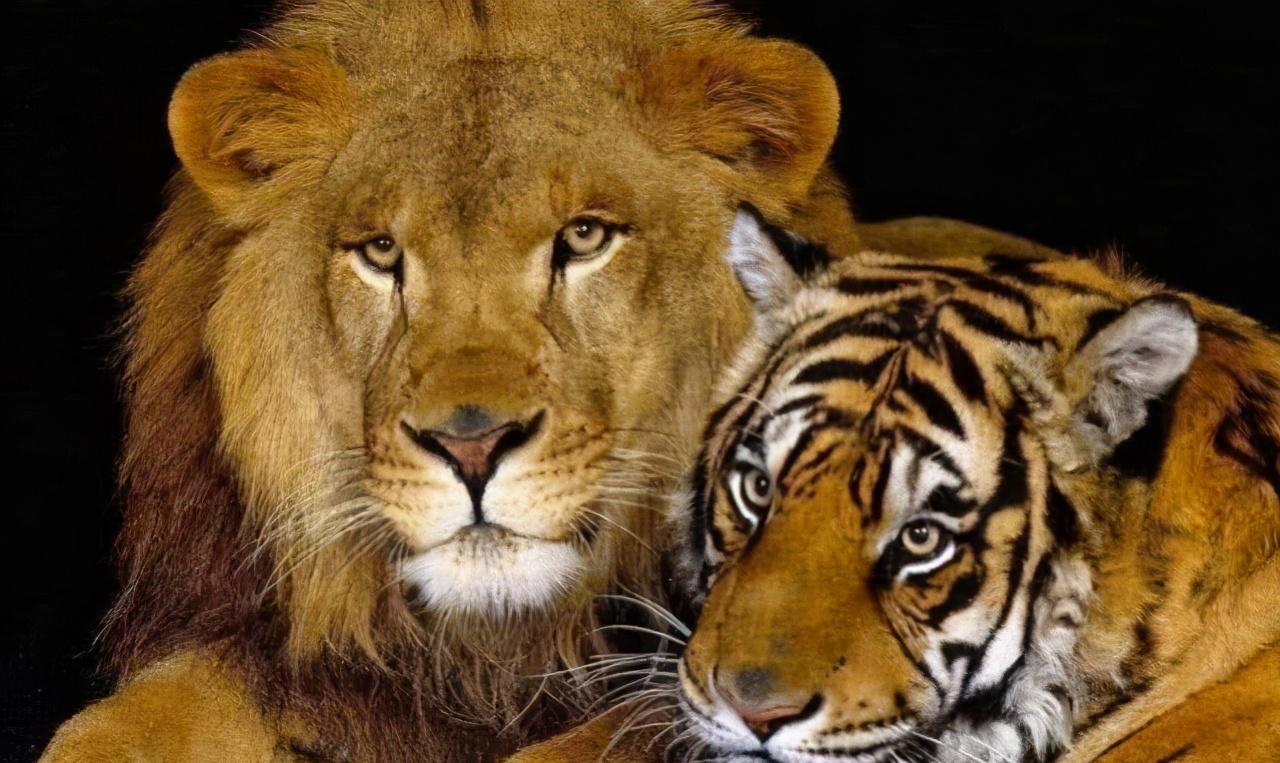Tigers living in the forest are good at stealth sneak attacks and win with one blow. Lions living on the grassland are good at division of labor and cooperation, and coordinate operations. Why do tigers and lions, who are also big cats, prefer to live alone and one choose to live in groups, and what is the reason for this?

Prey is different
Tigers live in the forest, here small and medium-sized animals account for more, tigers mainly prey antelope, wild boar, deer and other medium-sized prey, for tigers who are good at hunting, it is completely out of the question to deal with prey of this size alone, so there is no need to flock. Moreover, the prey of the forest is not as rich as the African grassland, if the tiger lives in groups, the prey in one area cannot meet the consumption of the tiger group, so the tiger can only live alone.
Lions live in the wilder African savannah, where most of them are larger animals. For example, elephants, rhinos, hippos, bison, etc., while lions mainly prey on wildebeest, bison, zebras, which are larger prey, most of the lionesses are involved in predation, and male lions are generally only responsible for guarding the territory and do not participate in predation. If it is a single lioness, there is no ability to hunt these large prey, so you can only choose a group lifestyle, and everyone cooperates with each other and works together to hunt these large prey.
The terrain is different
Tigers mainly inhabit mountainous areas, where dense forests are more suitable for covert sneak attacks, if tigers are in groups, it is easy to scare away prey, so tigers are more suitable for living alone and hunting alone.
Lions live in the African savannah, where the terrain is flat and not suitable for ambushes, and large herbivores will gather together to defend against predators in order to protect themselves, so lions are more suitable for group cooperative hunting. In the open grassland, the lion group hunting together has a clear division of labor, which can play a role in dispersing the herbivorous animal group, and it is easier to find the old, weak, sick and young prey, which greatly improves the success rate of predation.
Competition is different
Tigers living in forests have overlapping habitats with bears and wolves, and bears are omnivores that eat meat, but most of them are vegetarian and rarely clash with tigers. And bears are more bulky than agile tigers, so it is difficult to threaten tigers. In addition to the bear, the rest is the wolf pack, the tiger has the ability to kill the wolf in an instant, once the wolf is killed in a second, the wolf pack will scatter and flee, the tiger has always had an absolute deterrent effect on the wolf pack. In tiger habitat, there are few competitors who can threaten the tiger's survival, so there is no need to live in groups to protect themselves.
But lions are different, in the African savannah, hyena groups will often harass lions, their groups as small as a dozen, as large as dozens, hyena groups will invade the lion's territory, or rob them of food, and lionesses alone can not cope with herds of hyenas, so they can only choose to live in groups to defend against the harassment of hyena groups.
In addition, there are many scavengers in Africa, such as vultures, who will stare at the lion's prey, and if the lion leaves and does not finish eating the food, the vulture will quickly eat the rest of the food, so the lion would rather share the food with his companions than take advantage of these scavengers.
Tigers don't have to worry about these problems, they can put the leftover prey in one place, and then enjoy it the next time they are hungry.
Tigers live alone, lions live in groups, are a manifestation of their adaptation to the living environment, living alone has the advantages of living alone, living in groups has the advantage of living in groups, as long as they can survive in the cruel nature, breeding offspring, is the best way to survive.